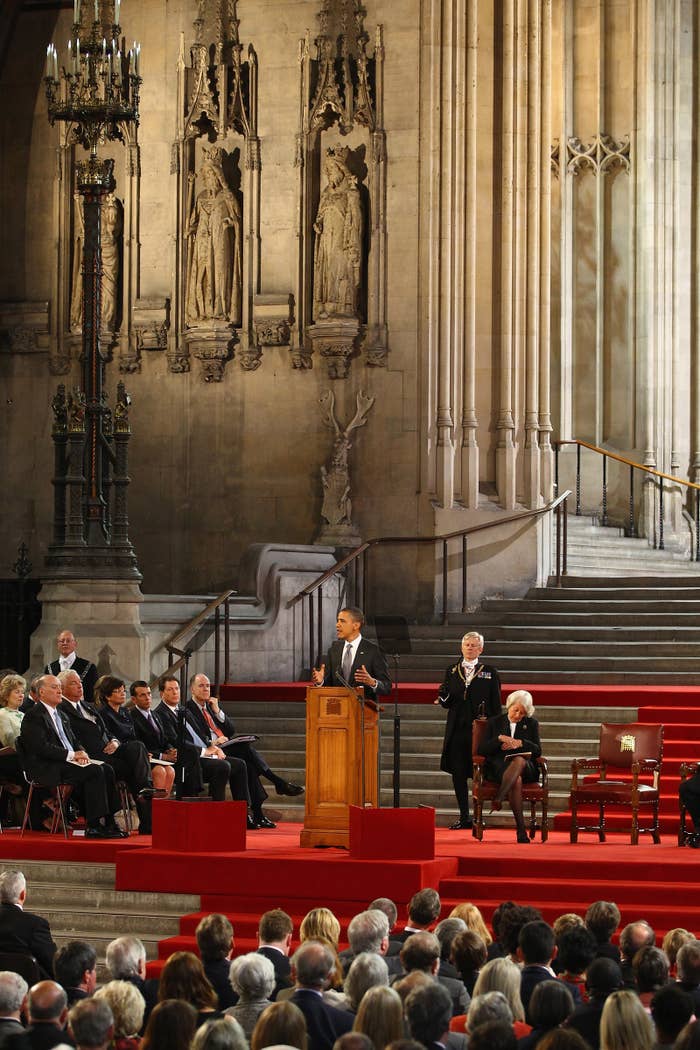Donald Trump should not be given the honour of addressing both houses of parliament on his state visit to Britain later this year because of his "sexism" and "racism", the Speaker of the House of Commons announced on Monday in an extraordinary intervention that drew applause from MPs.
John Bercow, who was a Conservative MP before becoming the politically neutral presiding officer of the Commons, said he would personally block any attempt to allow Trump to address both houses of parliament in the medieval Westminster Hall, an honour given to Barack Obama in 2011.
In a rare break with convention, Bercow declared in no uncertain terms his opposition to Trump addressing MPs and peers.
"We value our relationship with the United States," Bercow said in response to a point of order from Labour MP Stephen Doughty. "If a state visit takes place, that is way beyond and above the pay grade of the Speaker.
"However, as far as this place [the House of Commons] is concerned, I feel very strongly that our opposition to racism and to sexism and our support for equality before the law and an independent judiciary are hugely important considerations in the House of Commons.
"An address by a foreign leader to both houses of parliament is not an automatic right, it is an earned honour. Moreover, there are many precedents for state visits to take place to our country which do not include an address to both houses of parliament."

"Before the imposition of the migrant ban I would myself have been strongly opposed to an address by President Trump in Westminster Hall," said Bercow. "After the imposition of the migrant ban by President Trump, I am even more strongly opposed to an address by President Trump in Westminster Hall."
Westminster Hall is the most historic part of parliament – it hosted the trials of King Charles I and is used for the state funerals of monarchs. Bercow is one of three individuals whose approval is required before it can be used for any purpose – the others are the House of Lords Speaker and the Lord Great Chamberlain, a hereditary title held by the aristocracy.
Trump was invited on a state visit to the UK later this year by Theresa May on behalf of the Queen in an attempt to build relations with the new White House administration ahead of a potential post-Brexit trade deal.
However, the visit is already facing deep opposition, and large protests are expected.
After Bercow's announcement, a Downing Street source said it was nevertheless pressing on with planning for the visit. "We think we've been very clear about our views on the visit and we will discuss the itinerary in due course," they said.
Most US presidents had to wait several years before they were invited for a state visit, which is officially given the name of the Queen as head of state. In addition to Obama, both Ronald Reagan and Bill Clinton were invited to address parliament during their presidencies.
Reagan and Clinton addressed parliament in the Royal Gallery, which is part of the House of Lords.
Bercow said that while an invitation to speak there was the prerogative of the House of Lords Speaker, invites to foreign heads of state were issued in the name of both houses of parliament. "I would not wish to issue an invitation to President Trump to speak in the Royal Gallery," he said.
The Lords Speaker did not immediately reply to a request for comment as they were still considering Bercow's words.
The announcement was met with rare applause from MPs and shouts of "that's the end of that", breaking strict House of Commons rules on how to show appreciation for speeches.
"We shouldn't have clapping in the chamber," said Bercow. "But sometimes it's just easier to let it go."
